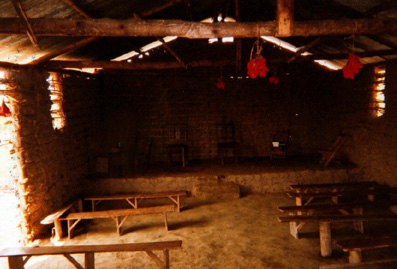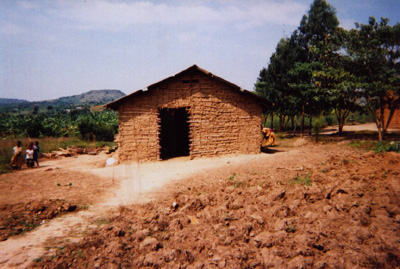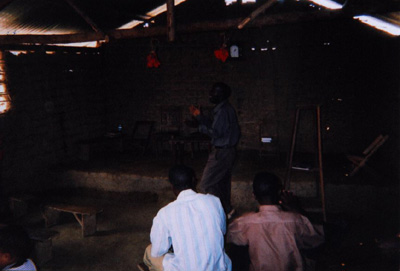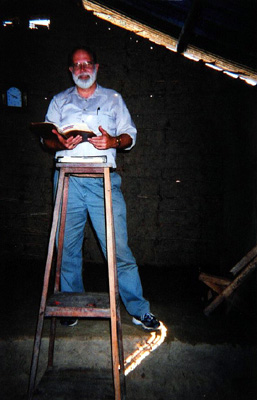
There was a bit of excitement in the village of Kalasa, Uganda, one afternoon. It seems that while I was teaching a group of local pastors in the Reformed Presbyterian Church, one of the local farmers heard his cattle making a ruckus, so he sent his young son to see what was ailing the cows. The boy set off with his dog and a stick. Suddenly a Python arose out of the grass and latched onto the dog, who had been running ahead. Had it not been for the dog, the boy would have been killed instead. He ran back to tell his father, who came and speared the snake while it was preoccupied with the dog, and then cut its head off with his machete to finish it off. It was over thirteen feet long and twice as big around as your arm; the villagers said it might well have been able to take down one of the cows. We arrived on the spot after the session in time to hear the mighty hunter recounting his exploits to a growing crowd of villagers while a few others were skinning the carcass at his feet. We couldn’t understand a word of his oration, but his excited intonations and animated gestures needed no translation as he relived the epic battle. His audience was a bit more enthralled than mine had been, though my pastors had not been unappreciative. And one of them ventured the opinion that perhaps a greater Serpent had been defeated in our meeting after all.
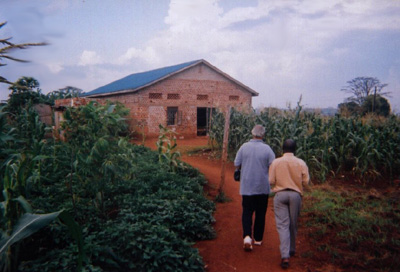
From June 26-July 18, 2003, I had the privilege of conducting a series of seminars for local pastors and church leaders on “Methods of Biblical Exposition” in Uganda, East Africa, under the auspices of Church Planting International. Four seminars in Kalasa (outside of Kampala, in South central Uganda), in two locations in the Rakai district (West), and in Jinja (in the East) were attended by over a hundred Presbyterian, Baptist, Methodist, and Pentecostal pastors and Bible teachers as I followed up my instruction on basic Bible content from last summer. Using the book of Ephesians as an example, I taught about how to put oneself in the place of the original audience, how to discern the major theme of a book, how to develop an outline that shows how each part of the book relates to that theme, and how to develop a series of messages from that outline that will not only teach and apply the content of the book but at the same time model good Bible reading for the congregation. In addition, I preached five times in Sunday services and spoke to a Presbyterian leaders’ retreat at the Lwezo Conference Center near Kampala.
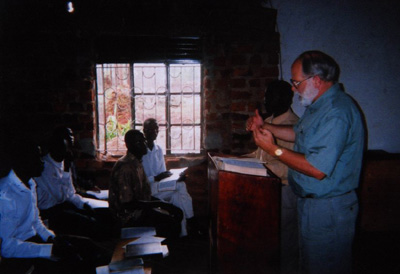
“Is this what Bible College is like?” asked one of the pastors attending the Jinja seminar. “No,” replied Wabulo Wilberforce, my interpreter and one of the few men there who actually holds a bachelor’s degree. “This is better. I never heard these things explained so well in college.” Of course, what I was doing in four days was not really better than four years of study. But it was the only formal training many of these men were likely to have the opportunity to get. My thanks and theirs—and, I believe, our Lord’s—to those of you who contributed and prayed. Please continue to pray for them that the Holy Spirit will give them wisdom as they teach their people, and that the methods I tried to give them will thus bear fruit to the glory of our Lord and the edification of His church.
